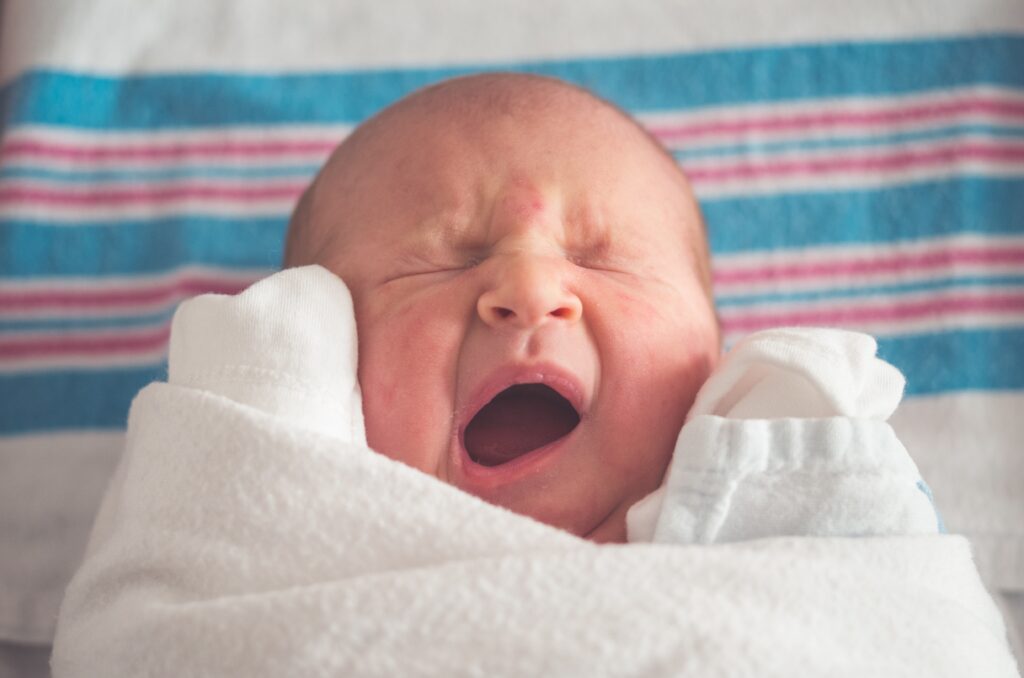Table of Contents
ToggleHere is Why Your Baby is Crying: 6 Possible Reasons

Babies, unlike adults, only communicate their frustrations through crying. As a first-time parent, you might feel this crying irritating or frustrating. You try to tuck them to bed, change diapers, and feed them, but the crying persists. So, how do you know why the baby is crying, and how can you manage the situation?
Top 6 reasons Why Your Baby is Crying
1. Stomach upsets.
Stomach upsets, including constipation, are a major cause of colic in babies. They are some of the issues that infants face, which I discussed earlier in this article.
In most cases, stomach upsets occur between two weeks and three months, especially in the evenings or at night. This condition is better known as colic.
A colicky baby cries for more than three hours a day, unlike in other cases. Besides the prolonged cry, babies battling stomach upset cry at a high pitch.
If your baby cries with an arched back, knees to their chest, tight tummies, and clenched fists, that is colic.
How to manage colic pain in babies.
Burping your baby after feeding them helps reduce stomach upsets.
Gently rubbing the baby’s back and tummy also helps release any trapped gas.
If the colic does not stop after trying these tips, your doctor can prescribe a more effective remedy.
2. The baby is unwell.
Another reason why your baby is crying is that they could be unwell. You can tell that the baby is unwell through their runny nose, vomiting, diarrhea, cough, constipation, and fever.
If the baby shows any of these signs, in addition to crying, kindly seek medical assistance immediately.
3. The baby is hungry.
Babies get hungry fast. Really fast. There are two reasons why babies get hungry after a short period. One, babies’ metabolism rate is very fast. for this occurrence are that the metabolism rate in babies is high, and their stomachs are also small.
A hungry baby is an angry baby. They will cry. Besides crying, a hungry baby will:
- Suck their tiny fists and fingers.
- Turn their heads towards your chest when you lift them up.
Regular feeding is the best way to stop the baby from crying.
4. The baby’s diaper needs to be changed.
When the baby wets or soils their diaper, they get irritated, making them burst out crying. Changing diapers early enough protects you from dealing with extended periods of crying. Besides, you would not want to deal with diaper rash.
5. The baby needs rest urgently.
You might wonder what would tire a baby, yet all their needs are catered for without them struggling. A baby gets tired of doing the “bare minimum”; breathing, staring, punching the air, and suckling.
Once the baby gets tired, they let out a prolonged cry, rubbing their eyes non-stop. If the baby is a few weeks or months old, it might stare into space or be quieter than normal.
If the baby shows these signs, follow these tips:
- Bathe them in warm water
- Let them suckle or bottle-feed
- Take them to their quiet beds for a warm sleep.
6. Their body temperature is extra high or low.
A baby might struggle to maintain its optimal temperature, unlike an adult’s body which regulates the same. They only cry if the baby’s body temperature becomes too high or low.
How do you check whether the baby is crying due to temperature fluctuation? Just feel the baby’s tummy or neck temperature since the hands or feet might always feel cold.
If the temperature is high, take heavy clothing off the baby but don’t leave them naked.
On the other hand, if the temperature is low, increase the room temperature and add warm clothes to them.
Bottom Line
Now that you know why your baby could probably be crying, you can manage that better. May you bring up your baby with little to no hitches?


